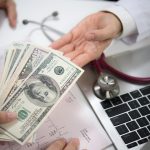Lawsuit exposes the deadly consequences of pharmaceutical negligence
 (NaturalHealth365) In pharmaceutical sales, ‘fair balance’ is a crucial concept. It means that the risks and benefits of medications should be conveyed equally. But does that really happen? Every medication and every shot has at least some risks. What happens when those risks are not disclosed, and the patients are not warned? What happens when someone dies as a result?
(NaturalHealth365) In pharmaceutical sales, ‘fair balance’ is a crucial concept. It means that the risks and benefits of medications should be conveyed equally. But does that really happen? Every medication and every shot has at least some risks. What happens when those risks are not disclosed, and the patients are not warned? What happens when someone dies as a result?
That is the basis for a lawsuit that a young woman’s mother has brought against pharmaceutical giant Merck.
Lawsuit highlights hidden risks and deceptive practices “brought to you by Merck”
Attorneys for the law firm Wisner Baum filed the complaint for wrongful death on February 23, 2024, on behalf of Erin Ferguson. Ferguson’s daughter died of cancer after receiving the Gardasil 9 shot. She was only 22 years old.
While one lawsuit may not seem significant enough to prove the risks of the shot, the more than 182 current cases against Merck for the same claims bring this issue into sharper focus. It isn’t just one person who had a bad experience, it’s hundreds with the same story.
This needs to be on somebody’s radar, and this federal Gardasil multidistrict litigation aims to do just that.
The 97-page complaint details the history of the shot, including Merck’s scare tactics and financial incentives to push legislation that would make it mandatory for all school children to receive the Gardasil shot. It also shows that Gardasil is a multi-billion dollar cash cow for the pharmaceutical company. For example, in the first quarter of 2024, the company’s sales of Gardasil are up 14% and climbing, particularly in the China market. No doubt, Merck is making a lot of money on Gardasil.
Discover a Simple and Effective Way to Remove Toxins: This is Jonathan's #1 choice for at-home detoxification. Special offer ends Feb. 16.
The lawsuit states that Merck is falsely representing the shot and making claims that it prevents cervical cancer even though there are no clinical studies to support the so-called “value” of this drug. The many harmful and hazardous ingredients in the shot are also called out, as is Merck’s history of concealing risks to falsify the safety profile of its products, including Gardasil.
The case is strong, and the evidence is overwhelming.
Can you really trust the data?
While Merck does try to cite several studies that “demonstrate” the shot’s safety and efficacy, the question is raised: Can we really trust data from Merck? We’ve seen the company’s history of concealing risks and manipulating clinical data, but there’s more.
When you examine the studies designed to “prove” that Gardasil 9 is safe and effective and the researchers involved in those studies, some red flags appear that indicate the data is not as unbiased as it should be. This is not to say definitively that there is bias in these studies that seemingly show Gardasil as safe, but there’s enough to warrant a closer look and a lot of questions.
Some notable concerns raised in the studies include:
- In the study titled “Trends in Human Papillomavirus Vaccine Safety Concerns and Adverse Event Reporting in the United States,” research team member Anna R. Giuliano, PhD, disclosed receiving financial support from Merck for speaking at conference symposia and participating in Merck-related advisory boards.
- The National Cancer Institute, which has partnered with the Merck Foundation on various projects, also provided funding and support for the study.
- In the study titled “Prevalence and Concordance of Oral and Genital HPV by Sexual Orientation Among US Men,” lead researcher Kalyani Sonawane, PhD, disclosed receiving consulting fees from Value Analytics Labs, a company with Merck as a client.
- Another team member, Ashish A. Deshmukh, PhD, MPH, disclosed receiving consulting fees from Merck for projects unrelated to the study.
- The National Cancer Institute, in partnership with the Merck Foundation, also provided funding and support for this study.
- In the study titled “Oral Human Papillomavirus Infection: Differences in Prevalence Between Sexes and Concordance With Genital Human Papillomavirus Infection, NHANES 2011 to 2014,” research team member Jagpreet Chhatwal, PhD, disclosed receiving “personal fees” and grants from Merck for work outside the submitted study.
- Timothy Wilkin, MD, MPH, another team member, disclosed receiving grants from Gilead Sciences and Bristol-Myers Squibb. Both Gilead Sciences and Bristol-Myers Squibb have collaborated with Merck on various cancer-related projects in the past.
This is just a drop in the bucket. Nearly every study purported to prove that Gardasil 9 is “safe and effective” contains these red flags and others. Granted, the pharmaceutical industry is tightly interwoven with collaborations and joint projects, but researchers receiving money from these companies are suspect.
The “proof” may have some scientific foundations, but the undercurrent of the pharmaceutical company’s monetary associations with the researchers should raise concerns and call the results into question.
So, the fundamental question is: Should you trust in “the science?” While scientific research forms the basis of many advancements and innovations, it’s essential to critically evaluate the sources and methods behind the information presented.
Ultimately, trust in “the science” should be built on transparency, rigorous methodology, and a commitment to truth-seeking.
Sources for this article include:
ChildrensHealthDefense.org
WisnerBaum.com
ChildrensHealthDefense.org
SEC.gov
ValueAnalyticsLabs.com
ResearchGate.net
NATAP.org
MedCityNews.com



